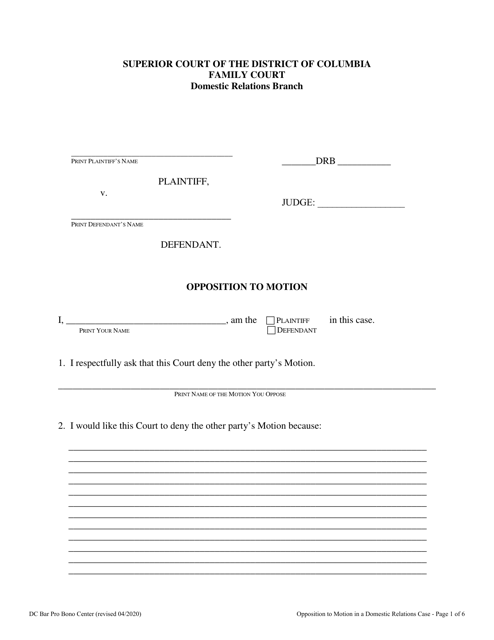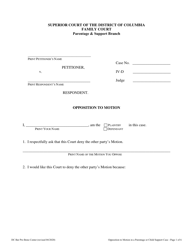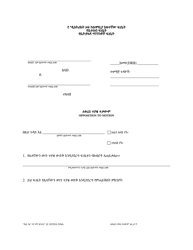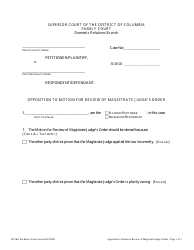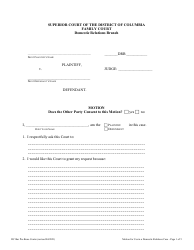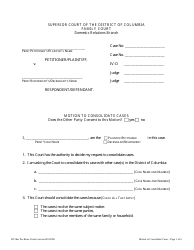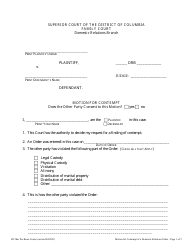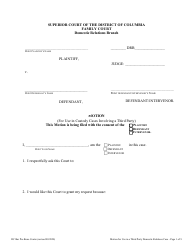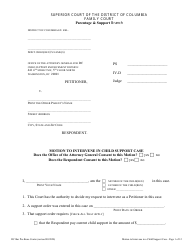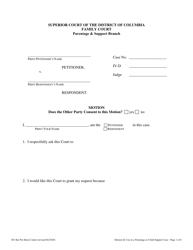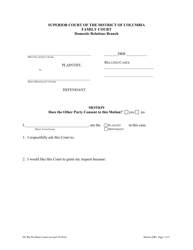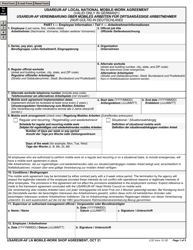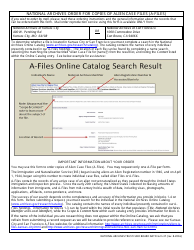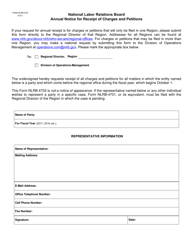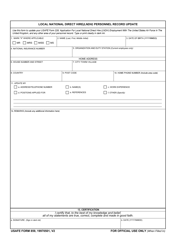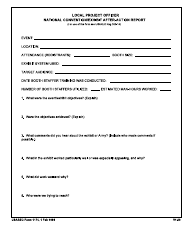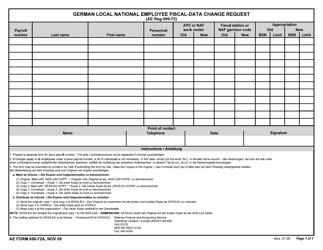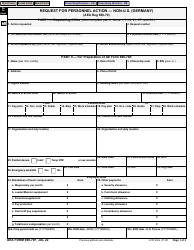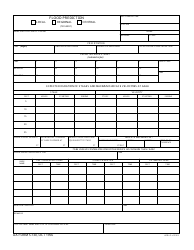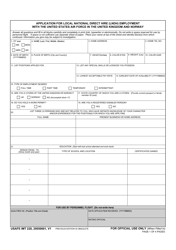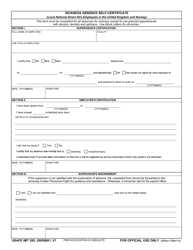Opposition to Motion in a Domestic Relations Case - Washington, D.C.
Opposition to Motion in a Domestic Relations Case is a legal document that was released by the District of Columbia Courts - a government authority operating within Washington, D.C..
FAQ
Q: What is a motion in a domestic relations case?
A: A motion in a domestic relations case is a formal request to the court for a specific action or decision.
Q: What is opposition to a motion?
A: Opposition to a motion is a response or objection filed by the opposing party to argue against the requested action or decision.
Q: Why would someone file opposition to a motion in a domestic relations case?
A: Someone may file opposition to a motion in a domestic relations case to present their arguments against the requested action or decision, and to convince the court to rule in their favor.
Q: How is opposition to a motion filed?
A: Opposition to a motion is typically filed with the court in writing, providing reasons and supporting evidence for the objection.
Q: What happens after opposition to a motion is filed?
A: After opposition to a motion is filed, the court will review the arguments presented by both parties and make a decision based on the evidence and legal principles.
Form Details:
- Released on April 1, 2020;
- The latest edition currently provided by the District of Columbia Courts;
- Ready to use and print;
- Easy to customize;
- Compatible with most PDF-viewing applications;
- Fill out the form in our online filing application.
Download a fillable version of the form by clicking the link below or browse more documents and templates provided by the District of Columbia Courts.
